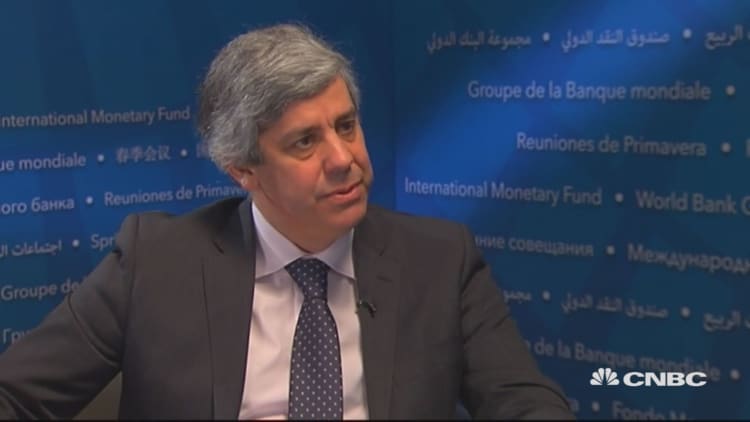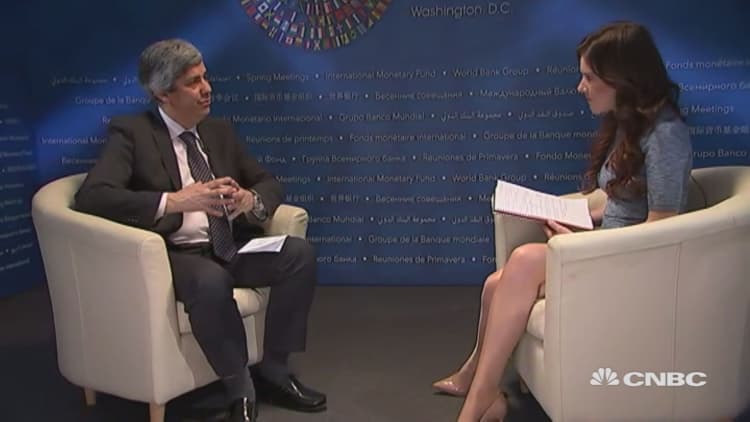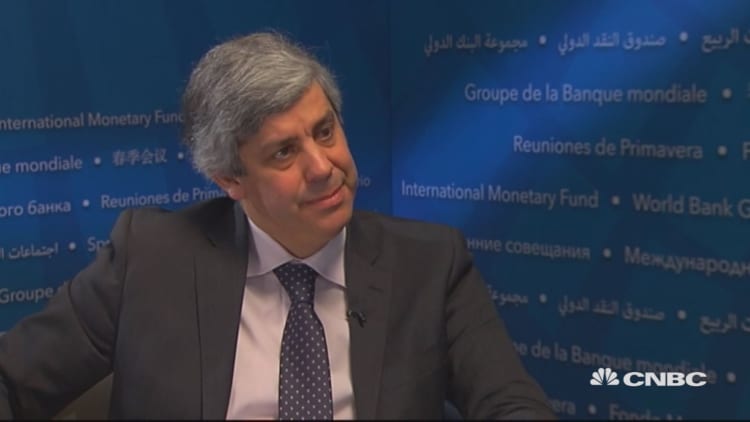


Portugal's finance minister denied on Friday that Angola controlled too much of his country's banking sector, but said the economic straits of Portugal's former colony were a worry.
The two countries retain close ties, including in the financial sector. Concerns raised by the European Central Bank about Portuguese banks' exposure to Angola led to the last-minute sale of an Angolan stake in Banco BPI this month.
"There is a strong… and in the last decade or so, a strong increase, in the economic relationship between Portugal and Angola. Many Portuguese workers are working there; Portuguese firms are also investing there and with this, of course, the economic problems in Angola are of concern for us, not only in the banking sector, but economy-wide," Portuguese Minister of Finance Mario Centeno told CNBC on Friday in Washington D.C.
The heavy exposure of Portuguese banks to Angola has raised increasing concern as the oil-exporting country in West Africa has struggled since the collapse in crude prices. This month, the International Monetary Fund confirmed it had received a formal request for financial aid from Angola. The country also beefed up capital controls this month in order to cope with a decline in foreign exchanges reserves, according to media reports.
"It (the Angolan risk) is manageable. It has been in the recent past, like in the last couple of months, managed," Centeno told CNBC on Friday, referring to the agreed sale of the 18.6 percent stake in Banco BPI controlled by Angola's Santoro Finance.
Santoro Finance was founded by Isabel dos Santos, the daughter of the Angolan president. Spain's Caixabank has agreed to buy Santoro's stake in BPI.
Centeno also addressed broader concerns surrounding the Portuguese banking sector.
"We are looking very carefully to the banking sector. We know that there is something that we need to do to stabilize the banking system — it's very important for the Portuguese economy," he said.
"What we are looking at is to a solution that may reduce NPLs in the banking sector."
In its latest Financial Stability Survey, released on Wednesday, the IMF warned that banks in advanced economies urgently needed to tackle elevated non-performing loans (NPLs).
Responding to suggestions tha taxpayers' money might be used to resolve the issue in Portugal, Centeno said that was not the "baseline" scenario.
"What we are looking at is a solution that does not include using taxpayer money to do that. Which, again, is something that is natural given the regulatory context that we live in Europe. That prevents that to be the case," he said.
Investors have been unsettled by the bail-in — when regulators impose losses on bondholders — of Portuguese bank Novo Banco.
"The treatment of select senior debt holders of Novo Banco (Portugal) has led to a perception of uneven handedness and increased uncertainty that has dented confidence," the IMF's report warned.
"The new rules for bail-in are very clear and we think that right now, and given the situation of the banking sector in Portugal, we need to avoid that," Centeno said.





